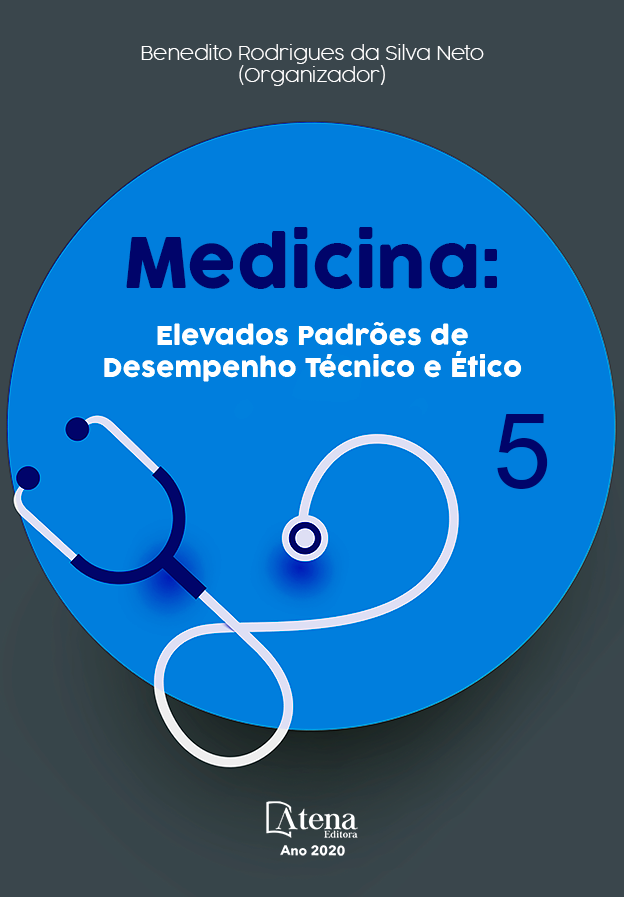
O RISO QUE ATENUA O SOFRIMENTO: ATUAÇÃO DO ESTUDANTE DE MEDICINA COMO DOUTOR PALHAÇO
INTRODUÇÃO: A humanização da formação médica e do ambiente hospitalar é uma necessidade recorrente na sociedade. Diante dessa demanda, no Brasil, em 1991, foi criado o Grupo Doutores da Alegria, tendo como proposta o uso da arte como terapia e meio de intervenção em hospitais, ampliando, assim, os canais de diálogos com a sociedade. Desde então, outras instituições com semelhante fim foram criadas em todo o país, visando articular bom humor e cuidado da saúde, de modo a valorizar o indivíduo em um esfera ampla, de forma biopsicossocial. Diante disso, foi fundada a Liga Acadêmica Doutores da Alegria, no curso de Medicina na Universidade de Ribeirão Preto (UNAERP), que conta com 20 integrantes dispostos à capacitação e atuação. OBJETIVO: Através do lema “olhar, sentir e agir”, visa interagir em hospitais e demais instituições com pacientes, acompanhantes e funcionários. MATERIAL E MÉTODO: Após Curso de Capacitação, ministrado pelo Grupo Expresso Riso, com aulas semanais baseadas em dinâmicas e arte, os voluntários encontram-se aptos a realizar as visitas semanais, exercendo empatia e entrega. RESULTADOS ESPERADOS: Espera-se, assim, transformar o ambiente de atuação e transformar o olhar do estudante de Medicina, atentando-se às necessidades integrais dos pacientes. Para o paciente, o riso é capaz de relaxar o corpo e a mente, fortalecer o sistema imune, melhorar a circulação, reduzir a pressão arterial, além de liberar endorfinas que causam sensação de bem-estar e aliviam a dor. No coração, aumenta a frequência cardíaca e, assim, a perfusão dos tecidos de todo o corpo; no pulmão, com o aumento da frequência respiratória, há maior oxigenação. Quando a prática do riso se torna constante e habitual, os benefícios são a longo prazo, como o aumento da força de contratilidade do coração e tonicidade do pulmão. No sistema endócrino, o nível de cortisol diminui e proporciona uma queda do estresse
O RISO QUE ATENUA O SOFRIMENTO: ATUAÇÃO DO ESTUDANTE DE MEDICINA COMO DOUTOR PALHAÇO
-
DOI: 10.22533/at.ed.68620111118
-
Palavras-chave: Humanização, Doutor Palhaço, Saúde, Estudante de Medicina
-
Keywords: Humanização, Doutor Palhaço, Saúde, Estudante de Medicina
-
Abstract:
INTRODUCTION: The humanization of medical training and the hospital environment is a recurrent need in society. Faced with this demand, in Brazil, in 1991, the Doutores da Alegria Group was created, with the proposal of using art as a therapy and a means of intervention in hospitals, thus broadening the channels of dialogue with society. Since then, other institutions with similar aims have been created throughout the country, aiming to articulate good mood and health care, in order to value the individual in a broad sphere, in a biopsychosocial way. In view of this, the Doutores da Alegria Academic League was founded in the Medicine course at the University of Ribeirão Preto (UNAERP), which has 20 members willing to train and perform. OBJECTIVE: Through the motto "look, feel and act", aims to interact in hospitals and other institutions with patients, companions and employees. MATERIAL AND METHOD: After a training course, taught by the Expresso Riso Group, with weekly classes based on dynamics and art, the volunteers are able to perform the weekly visits, exercising empathy and delivery. EXPECTED RESULTS: It is hoped, therefore, to transform the acting environment and transform the medical student's view, paying attention to the patients' integral needs. For the patient, laughter is able to relax the body and mind, strengthen the immune system, improve circulation, lower blood pressure, and release endorphins that cause a sense of well-being and relieve pain. In the heart, it increases the heart rate and, thus, the perfusion of the tissues of the whole body; in the lung, with increased respiratory rate, there is greater oxygenation. When the practice of laughter becomes constant and habitual, the benefits are long-term, such as increased contractility of the heart and lung tone. In the endocrine system, the cortisol level decreases and provides a drop in stress
-
Número de páginas: 15
- Monique Rossato da Cunha
- Maria Gabriela Costa Nascimento
- Sofia Banzatto


